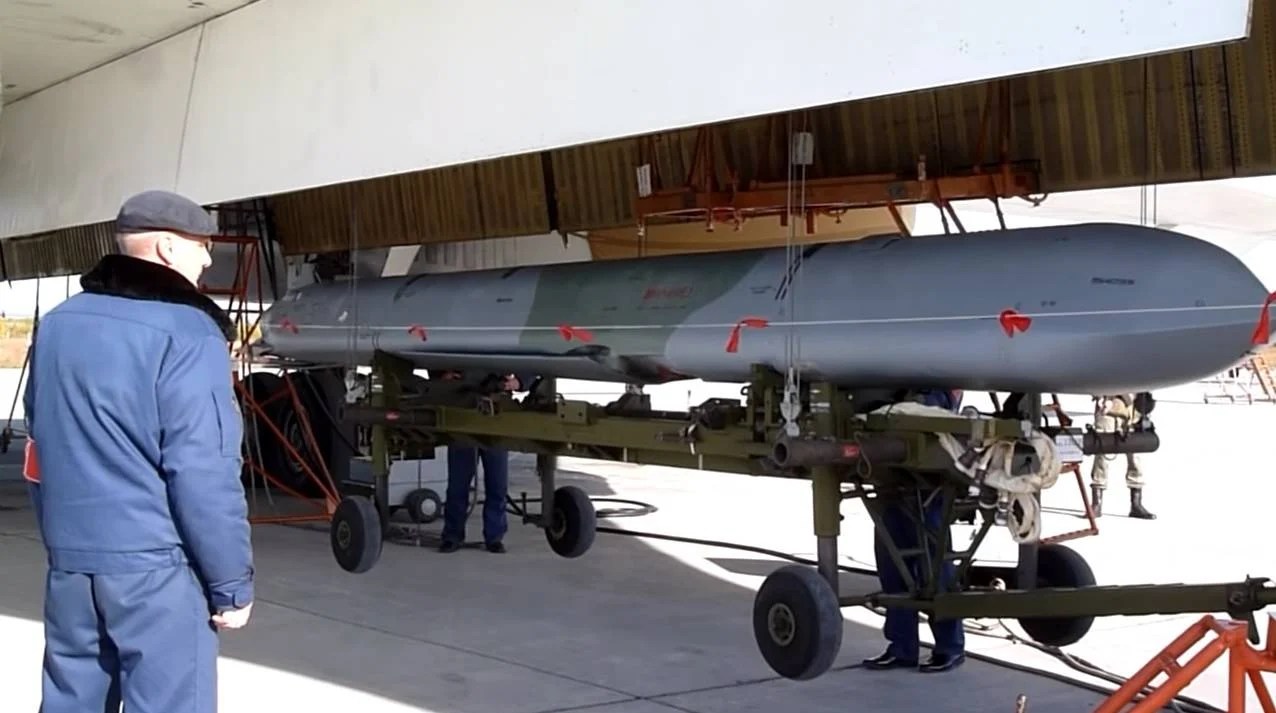Russia has, once again, reportedly modernized its air-launched cruise missile, the Kh-101, equipping it with dual warheads, thus doubling its potential threat level.
This revelation comes after reports emerged of Ukrainian air defense forces successfully intercepting a modified version of the Kh-101 on March 29.
According to information obtained from the Telegram channel @war_home, the intercepted missile, which had undergone modernization, featured an additional warhead, effectively doubling its overall payload.
Examination of debris from the downed missile also revealed a surge in explosive payload mass from 400 to 800 kilograms, raising alarms about heightened destructive capabilities.
The upgrade was made possible by reducing the size of the fuel tank, which consequently shortened the missile’s range from 5,500 to nearly 2,250 kilometers, as reported by Ukraine-based Defense Express.

This adjustment allows for the incorporation of the additional warhead while maintaining operational viability.
The decision to incorporate dual warheads in the Kh-101 missile was first unveiled in January 2024 during a visit by Sergei Shoigu, the head of the Russian Ministry of Defense, to the “Raduga” missile design bureau.
The revelation has sparked concerns about the potential ramifications of such enhancements in ongoing conflicts. Further details emerged from the Telegram channel “Polkovnyk HSH,” which provided photos of the warheads and highlighted the discovery following the analysis of a downed Kh-101 missile during the recent attack on March 29.
The second warhead contains ready-made damaging elements of cubic shape, typically used in anti-aircraft missiles, but now pose a significant threat to ground targets as well.
While the reduction in the fuel tank size limits the missile’s range, it does not significantly impact its operational effectiveness in Russia’s war against Ukraine. Even with the decreased range, the Kh-101 maintains substantial maneuvering capability, with potential targets in western Ukraine still within reach.
Russian sources in the mid-2010s suggested equipping the Kh-101 with dual warheads, indicating possibilities for dividing the 400 kg warhead into two configurations. However, specifics regarding the release mechanism in the upgraded version remain undisclosed.
Russian Kh-101 Cruise Missile
The latest addition of dual warheads to the Kh-101 is just one example of Russia’s persistent efforts to adapt its weaponry to suit the needs of modern warfare.
This revelation follows previous observations in December 2023, when a Russian Kh-101 air-launched cruise missile was observed releasing decoy flares during flight.
At the time, experts suggested that these flares were preprogrammed to deploy at specific waypoints, possibly during the terminal phase closer to the target or where threat systems were anticipated along the missile’s route.
Further advancements in the Kh-101’s guidance system have been noted, with improvements in the optical and electronic systems.
The upgraded Kh-101 features three stationary lenses, enhancing accuracy compared to the previous version, which had only one lens mounted on a rotary mechanism with limited tilt angles.
The Kh-101, along with its nuclear-armed counterpart, the Kh-102, represents a substantial revision of the Kh-55/Kh-555 family, incorporating stealth features and other enhancements.
The Kh-102 variant is designed to carry a 20-kiloton thermonuclear warhead, serving as the Russian Aerospace Force’s (VKS) primary air-launched nuclear-armed cruise missile.
Despite external similarities to the US AGM-158 JASSM air-launched cruise missile, the Kh-101 boasts a significantly longer range.
Strategic bombers such as the modernized Tu-160M and Tu-95MSM are equipped to carry the Kh-101, which offers various warhead options, including high explosive, penetration high explosive, and submunitions.
The Kh-101 features a turbojet dual-circuit engine, with the R95TM-300 models housed inside. Upon activation, the engine extends from the body, and the tail unfolds, allowing the missile to adjust its trajectory mid-flight.

Russia asserts that the Kh-101 missiles, theoretically capable of hitting moving targets with a remarkable accuracy of up to 10 meters, maintain a nominal circular probable deviation of 7 meters at ranges of up to 5,500 kilometers.
Developed by the Raduga Design Bureau, Russia claims that the Kh-101 is manufactured using exclusively Russian components. The Kh-101 was first utilized operationally in November 2015 as part of Russia’s support for the regime of Bashar al-Assad in Syria’s civil war.
While many of the initial missile salvos reached their targets, at least one missile crashed in Iranian territory close to the city of Shush, 750 kilometers from the Syrian border.
- Contact the author at ashishmichel(at)gmail.com
- Follow EurAsian Times on Google News




